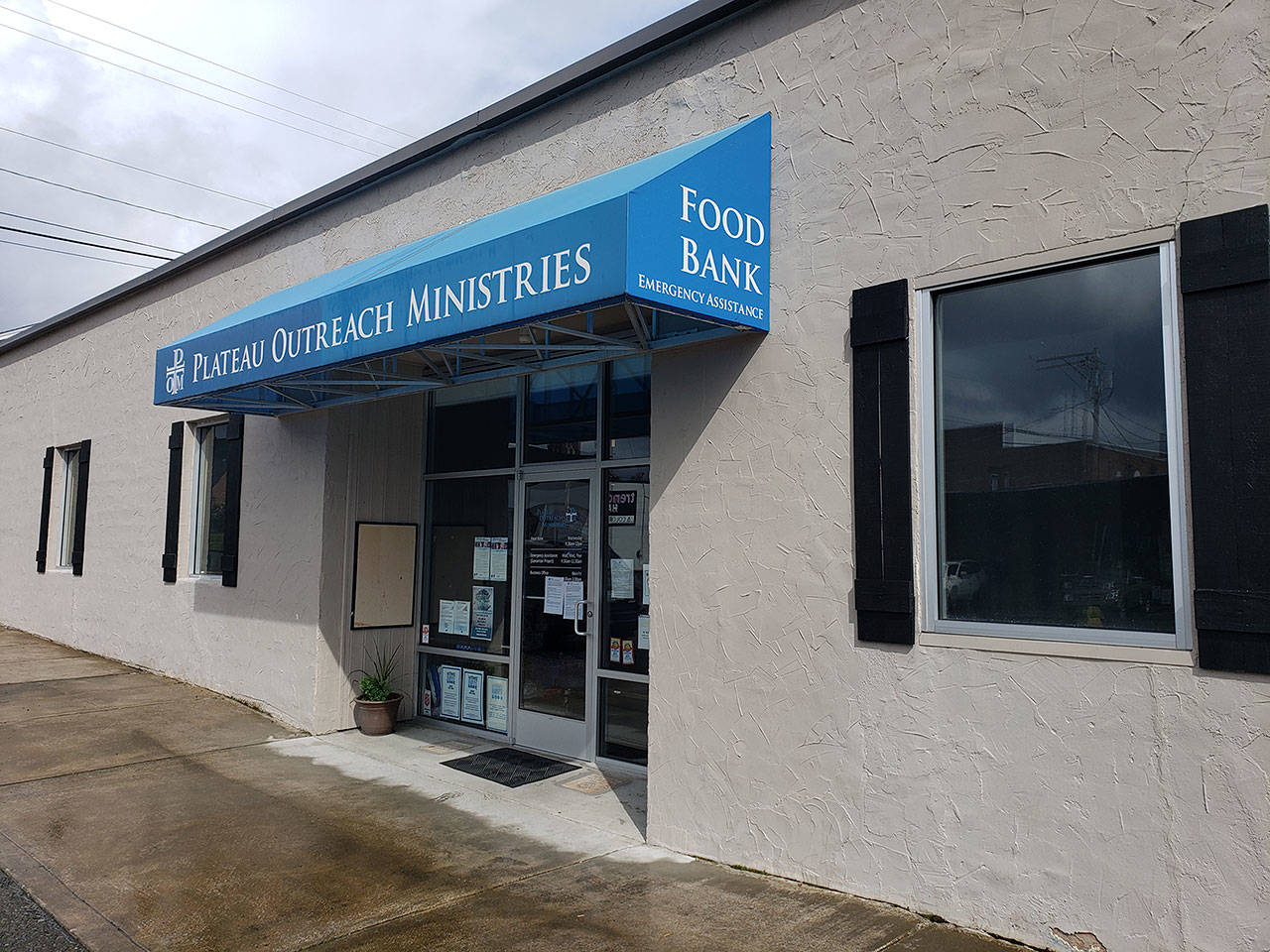For many families, the coronavirus threatens more than just their physical health — their financial health is at risk, too.
A recent Business Health Trust study estimated nearly 100,000 workers across King, Pierce, and Snohomish counties are at-risk or likely at-risk to coronavirus-related impacts to their industries, which includes reduced hours, furloughs, and layoffs; according to the state Employment Security Department, unemployment claims are reaching peak 2008 recession numbers.
Down here on the Plateau, though, there are nonprofits that can give people a hand, whether it’s just one-time assistance or long-term support.
There are normally strict requirements that determine who can receive financial aid, but COVID-19 has changed that, said Elisha Smith-Marshall, Plateau Outreach Ministries’ executive director, opening up aid to far more people.
POM’s Samaritans Services offers five general financial aid options – utilities, rent, bus and gas, pharmacy, and emergency shelter. Most of POM’s funds come from individual donations made to the nonprofit, but the PSE Warm Home Fund, the Salvation Army, and the city of Enumclaw also contribute.
In fact, Enumclaw Mayor Jan Molinaro announced last week that the city is donating an additional $20,000 to POM for financial aid.
“In discussions with the POM Director, the need was starting to be seen with their clients, as well as anticipating what lies ahead for our citizens in the community,” Molinaro said in an email interview. “Uncertainty of jobs and income over the next couple of months was the deciding factor to add funding to POM and getting ahead of it.”
Last year, close to $151,000 was used to help 987 families, or 2,079 individuals, across Enumclaw, Buckley, Black Diamond, Ravensdale, Green river, Carbonado, Selleck, Wilkeson, and Burnett, according to POM’s 2019 annual report.
About 52 percent of that financial aid went to help people with their utility bills
“[We] usually require people to have a urgent, final, or shutoff notice” before being eligible to receive aid, Smith-Marshall said. “Right now, that is all being waived to just show that someone missed a payment.”
Similar requirements for rental assistance are also being set aside; about 32 percent of the financial aid provided last year went to rent.
“Our usual requirement is that we have a 14 or 20 day vacate notice, but those are being waived,” Smith-Marshall continued. “Right now, we’re having clients bring us in a note from their landlord that they missed a payment or missed a partial of their payment.”
POM does not give their clients cash or checks to pay these bills themselves. Instead, vouchers are given to the utility companies, be they PSE or a municipality, or landlords.
Smith added that in order to receive rental aid, POM requires an up-to-date W9 form from the landlord; the nonprofit already has many of the W9 forms for larger landowners in its service area, but those who rent from smaller-scale landowners may have to request one.
Unfortunately, POM does not provide mortgage assistance, as “people don’t like to get that third party check,” Smith-Marshall said, so case managers will refer clients to other services.
Only about five percent of last year’s financial aid went to providing clients with either gas money or vouchers for bus rides. These services are mostly reserved for those who need transportation to a doctor’s office, job interview, or – occasionally – getting to their new job while they’re waiting for their first paycheck.
Pharmacy and emergency shelter financial aid accounted for less than one percent of the aid given last year.
Although it’s unknown when Gov. Jay Inslee will lift his ban on gatherings or allow restaurants, bars, and other businesses to re-open, Business Health Trust – sponsored by the Seattle Chamber of Commerce – wrote in its report that it expects many jobs to recover after the outbreak runs its course. That being the case, some who go to POM for aid may just need a little financial assistance to get back on their feet, while others may have to rely on additional financial help.
For those in the latter category, Smith-Marshall said case workers will help establish goals for clients to encourage forward momentum – or in other words, clients must show they’re making progress in becoming financially independent in order to continue receiving services.
“That’s that empowerment to self-sufficiency.”
To request aid, call 360-825-8961 on Mondays, Wednesdays, or Thursdays between 9:30 and 11:30 a.m.; appointments can be made for working families.
In order to encourage social distancing, case management work is being done over the phone, and Smith-Marshall said it’s best to fill out paperwork and email it to info@plateauoutreach.org. If that is not possible, paperwork can be filled out over the phone.
Finally, Smith-Marshall encourages anyone who needs help to give the nonprofit a call.
“For people who may have never needed assistance – don’t hesitate,” she said. “I know… they’re holding off on evictions and holding off on PSE bills, but we can still help so that when everything stops, they don’t have this huge… amount in rent or PSE or their water bill that they have to catch up on when they need to move forward and focus on their future bills as well.”
For more information, go to https://www.plateauoutreach.org/services-1.
BLACK DIAMOND COMMUNITY CENTER
The Black Diamond Community Center also has funds to help folks in Black Diamond, Ravensdale, Maple Valley, Covington, and the eastern portion of unincorporated Kent (ZIP code 98042) with PSE bill payments.
According to the community center, residents should call (360) 886-1011 Mondays through Thursdays to make an appointment; in order to qualify for assistance, the words “past due”, “urgent notice”, or “final notice” must appear on a bill or letter from PSE.
Up to $300 per household is available to those who can receive assistance.
Additionally, the BDCC’s food bank remains open Mondays and Wednesdays from 9 a.m. to 3 p.m. for residents of the greater Black Diamond area.


